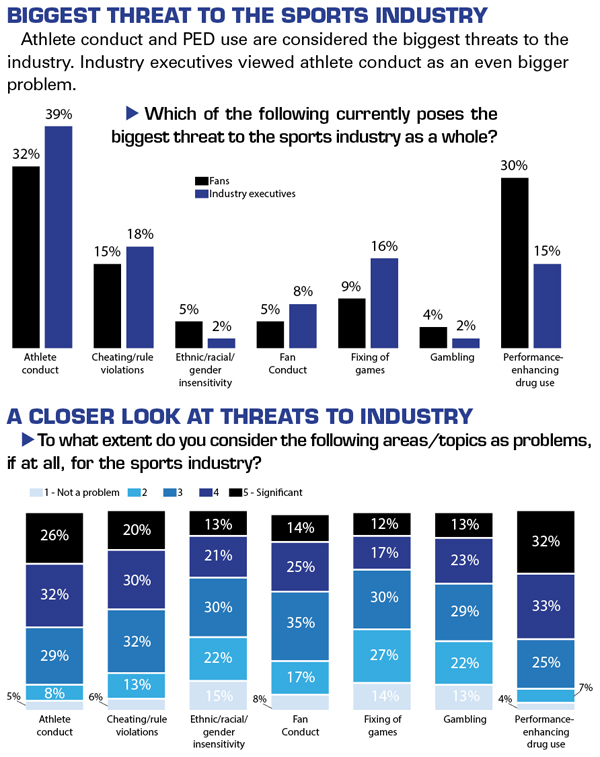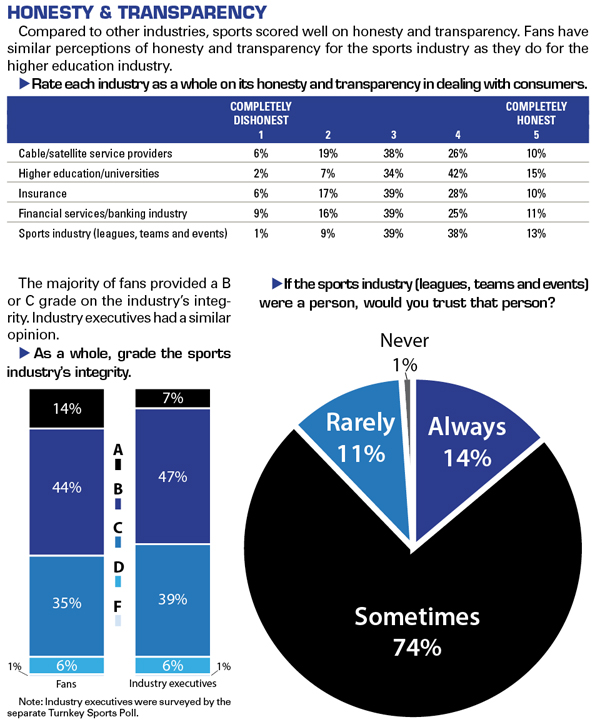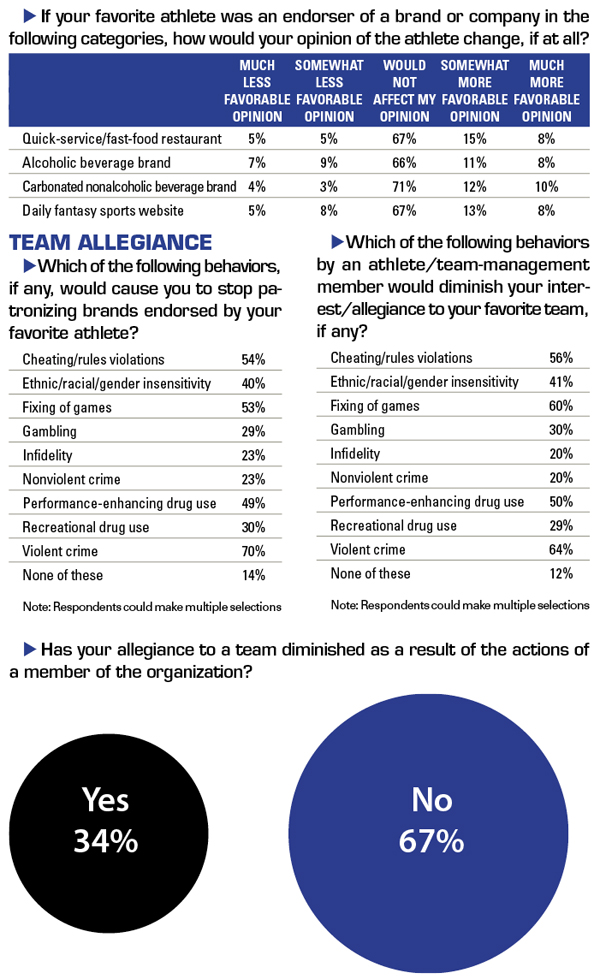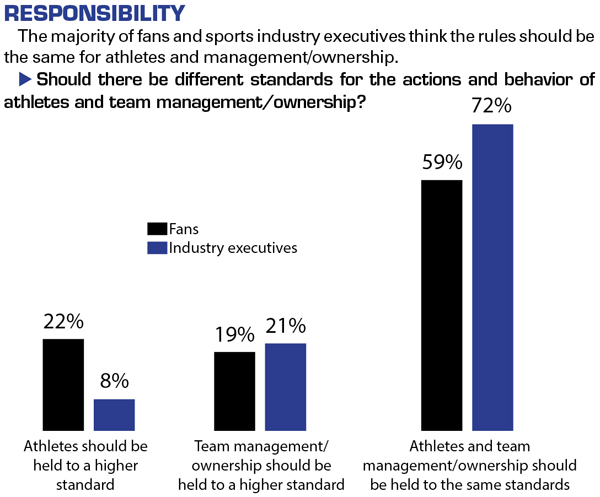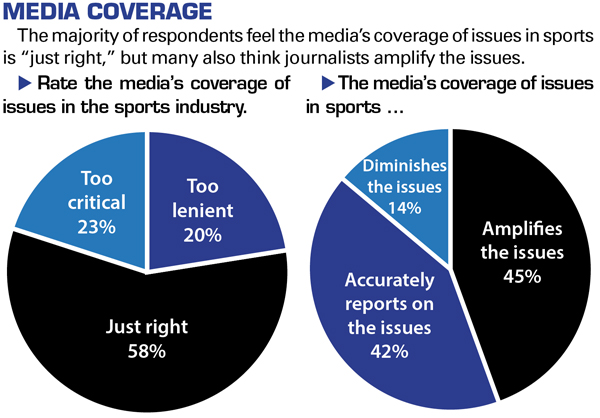2014 was a turbulent year in sports. As usual, it captivated audiences’ attention, but many times for the wrong reasons. Instead of serving as an escape from everyday problems, our industry was the catalyst for nationwide discussion about social values and responsibilities, thanks to multiple off-field issues and transgressions.
A major component of this phenomenon is the very nature of the sports industry: Few other trades have members so interconnected in governing and performance. The result of this is a culture where the industry’s actions are felt on a communal scale — when one sport wins, we all win. When one of us is under fire, we all have to adjust.
For this reason, SportsBusiness Journal and Turnkey Intelligence elected to ask fans to share their perceptions of the industry’s integrity, keeping in mind sports as a whole rather than a specific team or league. Results are on this page and the pages that follow.
Which recent issue poses the biggest threat to sports? Should athletes be held to higher standards than management? Is the sports industry honest with its customers? These are the types of questions we asked, and our research suggests things are not that bad.
However, fans showed low tolerance for off-field lapses. Importantly, the data emphasizes the direct effect of an individual’s missteps on the parent organization, and the brands that the athlete endorses.
Most fans rated the sports industry’s integrity as an A or a B, with just 1 in 15 providing a letter grade below C. Remarkably, asking industry executives — members of the Turnkey Sports Poll — to answer the same question resulted in almost identical results. We thought fans would be more critical.
According to fans, the honesty and transparency of the sports industry is comparable to that of the higher education system, and better than the levels perceived in the insurance and financial services industries.
Performance-enhancing drug use is a tired topic in industry circles, so we were surprised fans considered it a threat comparable to athlete conduct. Sports executives perceived the latter to be by far the biggest threat to the industry’s integrity (from the list provided).
In a telling finding for the current landscape, fans would prefer their favorite team stay away from a star athlete when there is a history of transgressions. Violent crime, fixing of games and rule violations were viewed as almost equally damning — a majority of fans would rather their teams pass on star athletes implicated in these activities.
While we did not ask the same question about management, we expect fans to display similar attitudes — seven in 10 stated that athletes and management should be held to the same standards.
Perhaps the most compelling takeaway, while certain actions tend to have bigger implications than others, fans’ reactions appeared to be the same when considering athletes, sponsors and teams.
Years ago, Charles Barkley famously argued that athletes don’t have a responsibility to be role models. Whether one
agrees or not, this study suggests athletes today should at least steer clear of trouble. In the reality of social media and a growing list of 24/7 sports TV networks, legal or moral missteps of any kind will alienate meaningful segments of fans and can abruptly turn stars into brand liabilities for their employers and sponsors.
Nikolay Panchev is vice president of research at Turnkey Intelligence.
Methodology
The online survey was conducted by Turnkey Intelligence and involved 501 general sports fans across the United States. Those respondents were screened to ensure they:
■ Are at least a casual fan of sports (3-5 on a 1-5 scale);
■ Attended at least one sporting event on the pro and/or college level in the last 12 months;
■ Watched on TV at least 10 sporting events on the pro and/or college level in the last 12 months;
■ Are between 18 and 74 years old.
The data was collected March 3-7. Of the respondents, 58 percent were male.
Three of the questions in the survey also were fielded in the March 2015 edition of the Turnkey Sports Poll, which goes to a panel of more than 2,000 sports executives in the professional and college ranks. References to results from those questions are made where relevant.
Statistical anomalies are due to rounding.



